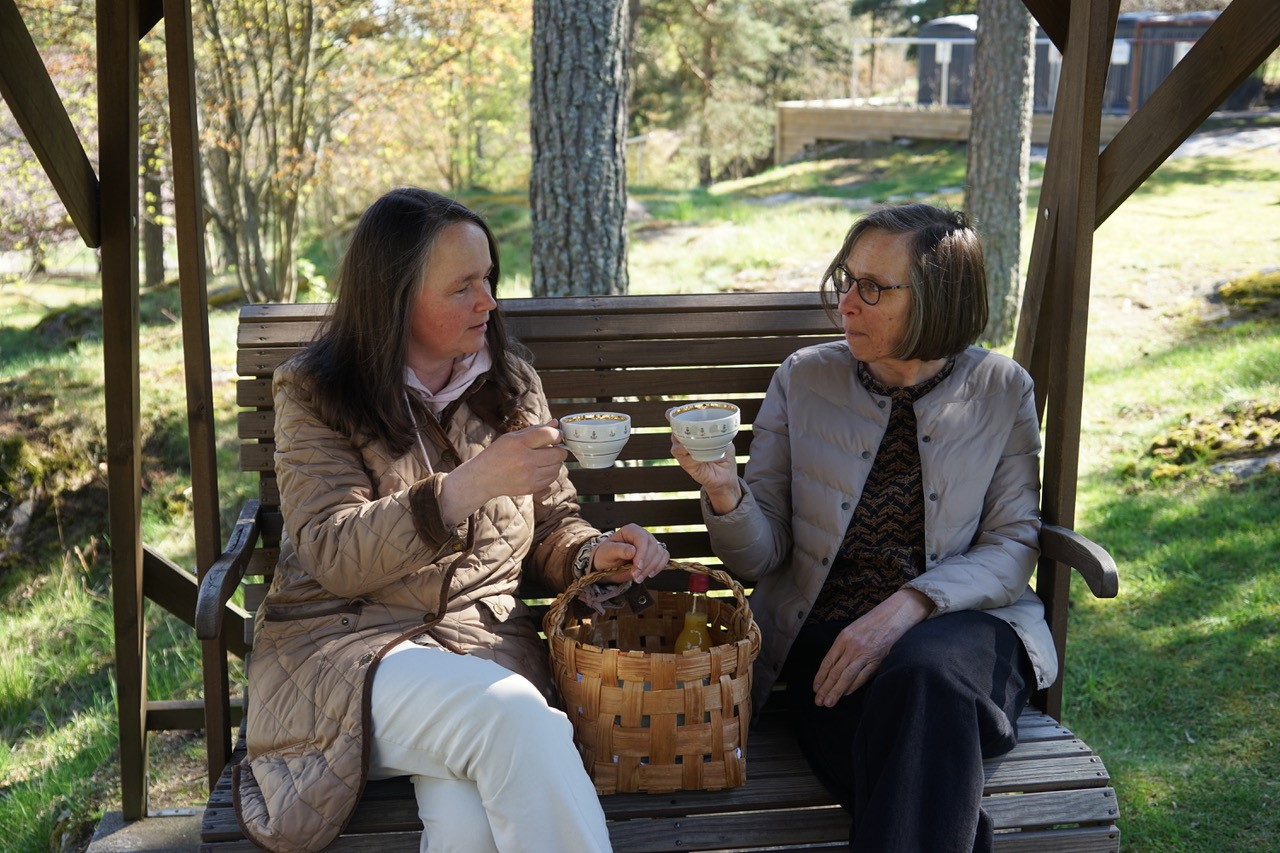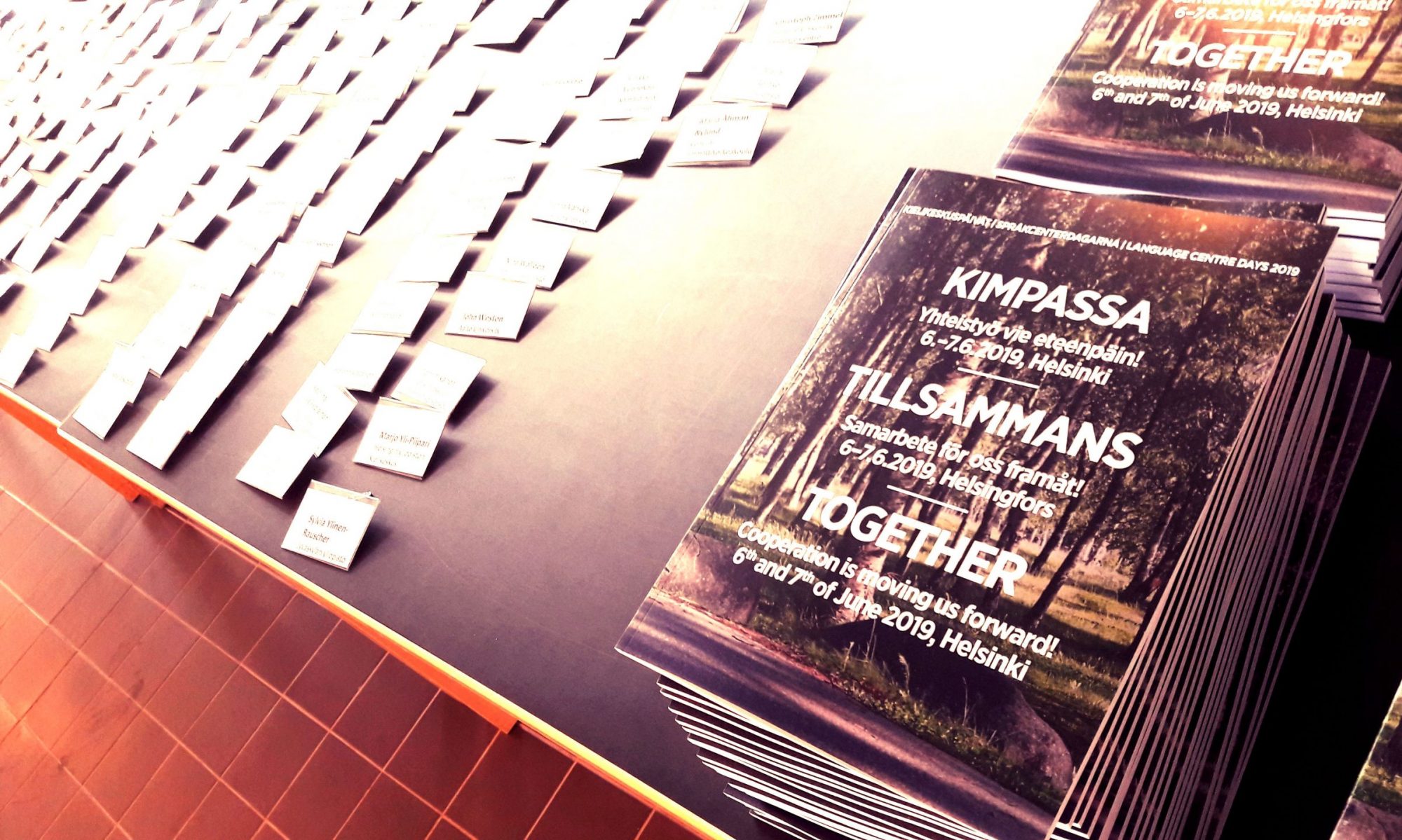Do you remember?
Tiina, why do you think the Language Centre’s Communications Committee chose us as the Face of the Year? Maybe it was because we have been such a familiar sight in the Language Centre classrooms and corridors for more than three decades. About 10 years ago, we were pleased to have the opportunity to start planning and teaching English and Swedish courses for diverse learners. The Language Centre working group for special learners (ERI-ryhmä in Finnish) and its work supporting the equality of learning were recognised with the Maikki Friberg Award in 2011. Let’s take a trip down memory lane by looking back to what we said in our acceptance speech.
Do you remember, Tiina, how we were preparing our speech and reflecting on the idea of the joy of learning? We realised that the joy must come from the teacher, that a good pedagogical encounter is a tremendous opportunity and that if it does not happen, it is a huge loss. I remember us reflecting on how important it is that ‘pedagogical love’ emerges and is encouraged to emerge, and that it must emerge within me, towards this student, during our encounter. I remember how we then talked for a long time about the importance of listening with empathy and of hearing the student’s message. I remember how we thought of what it means to listen to the other, to listen to diverse experiences and diverse ways of being and learning. I think I said that closeness and trust help, as does genuine interest in the student, listening to the student’s story in a respectful, appreciative and non-judgmental manner. Do you remember?

Lecturer Tiina Mäenpää and University Lecturer Leena Karlsson
I do remember, Leena, and I hope I will never forget. The basic principle of the pedagogy of love is just as current now as it was a decade, or even three decades, ago. It inspires me tremendously in my work and gives it meaning. Language learning is often a sensitive, delicate, deeply emotional process, and I strongly believe that if love is a visible part of this process, both the student’s and the teacher’s identity are strengthened. The more room we give to love, trust and acceptance, the more we enable moments of meaningful learning. Love creates joy, joy reduces stress, and a lack of stress contributes to peace of mind and a sense of focus that are necessary for learning if the word is to have any substance. Or what do you think, Leena?
I think that pedagogical love is associated with the practice of special pedagogical sensitivity. We should listen closely to hear what is possible with each student, what the student’s story is, what I can and cannot ‘touch’ in that story. Pedagogical sensitivity is about sensing the experience behind the words. We do not always understand the experience, but we respect it. It is about encouraging students to climb the language mountain. It is about trusting students and their abilities. It is also about giving them the space to reminisce and tell their story. Maybe we should tell our own story, too. However, pedagogical sensitivity is also about giving time and creating safe waypoints along the way. We should not rush students, but give them time to retell their story (and maybe tell it in another way). This then leads to the development of an ethics of caring that encompasses our work, teaching and research.
Tiina, do you remember when we talked about the importance of admitting to imperfection? I have often quoted you: Perfekt är ointressant (‘Perfect is not interesting’). What does imperfection mean in your view?
Imperfection means being a human being, a teacher and a student. I often wonder how difficult it is to treat language as a constant that does not protest when placed on the scales created for it. After all, language, language proficiency, is an ever-changing, organic entity that you capture at one moment, only for it to slip from your grasp the next. Now it flows and spills effortlessly, but soon it and its words appear unattainable. We succeed and fail as language users, hence also as language teachers and learners. So be it. I consider myself successful in my role if I remember to encourage the learner to rejoice in the moments when the language flows and you feel you ‘own’ it, but also to look at the more challenging moments with grace. Language proficiency is not a constant, and neither is perfection. I would like to return to love: Leena, do you think pedagogical love could mean understanding that we are perfect in our imperfection?
Yes, I like that. The student must be able to be him- or herself in full, including language, mind, dreams, challenges and strengths. To quote Tomas Tranströmer: “Don’t be ashamed to be a human being, be proud! Inside you one vault after another opens endlessly. You’ll never be complete, and that’s as it should be.”
This is what we discussed sitting in a garden swing on a cool, but sunny Saturday in March 2020. Maintaining a safe distance but feeling spiritually close, we raised a toast with our coffee cups and cinnamon buns for all the years past, our wonderful students and also to each other. Long live the Language Centre and its courses for special learners!
Herttoniemi, 28 March 2020
Text: Leena Karlsson and Tiina Mäenpää
Tiina Mäenpää, lecturer of Swedish, and Leena Karlsson, university lecturer of English, have for years promoted the Language Centre’s provision of language teaching tailored to students suffering from foreign language and classroom anxiety. Leena Karlsson will retire in summer 2020.

